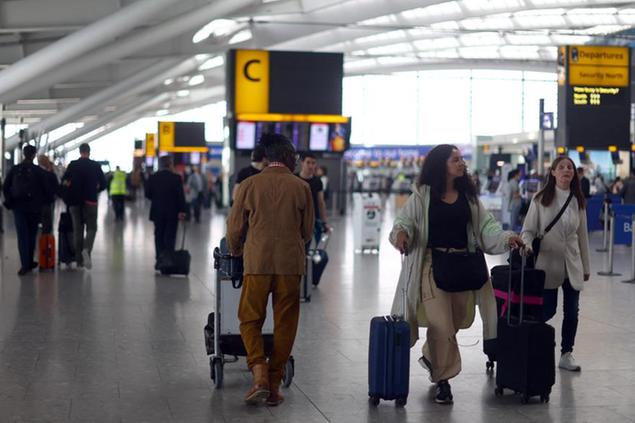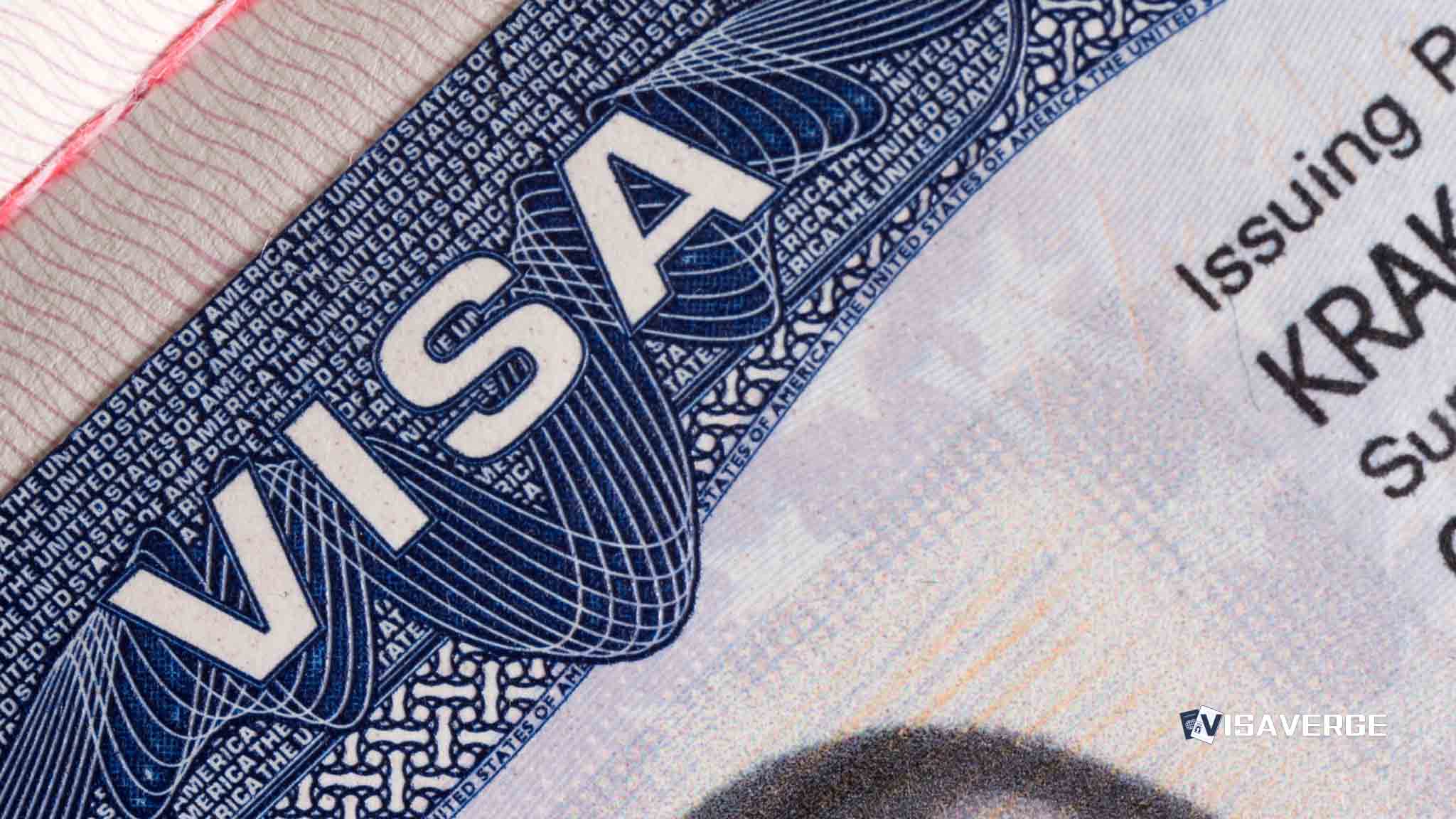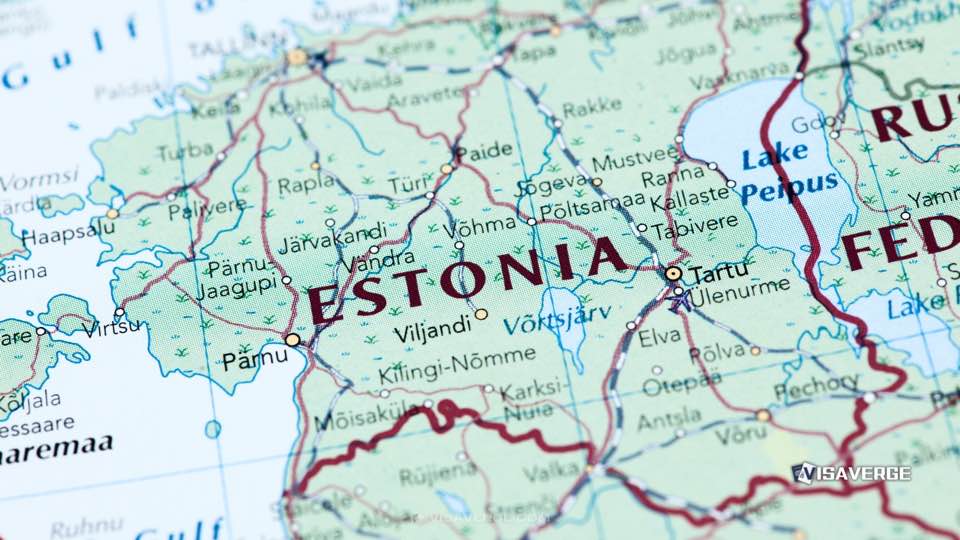Travelers and businesses across Southeast Asia face major visa changes in 2026, with Thailand, Vietnam, Malaysia, Indonesia, and the Philippines all updating their entry rules. These changes affect millions of tourists, digital nomads, and local industries, as governments try to balance tourism growth with security and economic needs.
Thailand’s Visa-Free Stay Cut and Digital Arrival Card

Thailand, a top tourist destination in Southeast Asia, will reduce its visa-free stay for visitors from 93 countries from 60 days back to 30 days in 2026. This move comes after the government expanded the visa-free period in July 2024, hoping to boost tourism after the pandemic. However, officials found that some travelers, especially from China, used the longer stay to work illegally or run unauthorized businesses. The government now wants to protect local jobs and businesses by tightening the rules.
A senior Thai immigration official explained, “We saw a rise in illegal employment and unlicensed tour operators, especially from China. The shorter visa-free stay will help us control these problems while still welcoming tourists.”
The exact date for this change is not set, but travelers planning trips to Thailand in 2026 should expect the 30-day limit to return. This affects tourists, business visitors, and anyone using the visa-free option for longer stays. Those who want to stay longer will need to apply for a proper visa before arrival.
Alongside the visa-free stay change, Thailand now requires all foreign visitors to complete a Digital Arrival Card online before entering the country. Since May 1, 2025, travelers must fill out the form at the official Thailand Digital Arrival Card website within three days before arrival. The form asks for passport details, travel plans, where you will stay, and your health status. This new system replaces the old paper arrival card and helps Thai authorities process arrivals faster and more securely.
For many, this digital step is simple, but it is important to complete it before traveling. Missing the online registration could cause delays at the airport or even denial of entry. Travel agents and airlines now remind customers to finish this step as part of their pre-trip checklist.
Thai E-Visa System Goes Global
Thailand’s move to digital processes does not stop at arrival cards. From January 1, 2025, the Thai E-Visa system is available worldwide. This means travelers from any country with a Thai embassy or consulate can apply for most types of Thai visas online, without visiting an embassy in person. The E-Visa covers tourist, business, education, and other common visa types.
Visa agents in Thailand can also help applicants remotely, making the process smoother for those who may struggle with online forms or need extra support. This digital shift saves time, reduces paperwork, and makes it easier for people to plan trips or longer stays in Thailand.
Thailand Privilege Program and Elite Visa Updates
For those seeking long-term stays, Thailand’s Privilege Program, also known as the Elite Visa, remains a popular choice. In 2024, Thailand introduced a new “Thailand Privilege Bronze” membership. This tier offers a 5-year visa with basic benefits at a lower price, sitting between the cheaper Destination Thailand Visa (DTV) and the higher-level Elite memberships like Gold, Platinum, Diamond, and Reserve.
The Elite Visa is known for its long durations (5 to 20 years) and perks such as airport services, help with government paperwork, and access to special events. The new Bronze tier makes it more affordable for frequent visitors or retirees who want to stay in Thailand without the hassle of regular visa runs.
Potential Changes for Chinese Visitors
Thailand and China 🇨🇳 signed a mutual visa waiver agreement in March 2024, allowing Chinese tourists to stay up to 90 days. However, most Chinese visitors stay less than 15 days, and Thai officials worry the long stay could be misused. The government is considering reducing the allowed stay for Chinese tourists to 30 days, matching the new general visa-free rule. This change is still under review, but it shows Thailand’s focus on matching visa policies to real travel patterns and security needs.
Vietnam Expands Visa Waivers for European Tourists
Vietnam, another major player in Southeast Asia, is making it easier for some European travelers to visit. Starting March 1, 2025, Vietnam waived visas for tourists from Poland 🇵🇱, Czechia 🇨🇿, and Switzerland 🇨🇭 who join package tours. These visitors can stay up to 45 days without a visa. This move is part of Vietnam’s plan to attract more European tourists, who tend to spend more and stay longer than other groups.
A spokesperson from Vietnam’s tourism board said, “We want to welcome more visitors from Europe. By making it easier for them to come, we hope to boost our tourism industry and create more jobs.”
Travel agencies in Poland, Czechia, and Switzerland are already promoting new package tours to Vietnam, highlighting the visa-free benefit. Tourists should remember that the waiver only applies to those on organized tours, not independent travelers.
Malaysia Maintains Current Visa Policies
Malaysia, a favorite destination for both tourists and business travelers, has not announced any major visa changes for 2025 or 2026. The country continues to offer visa-free entry to many nationalities and runs a popular eVisa program for others. Malaysian officials are watching regional trends and may update their policies later in 2025 to stay competitive with neighbors like Thailand and Vietnam.
For now, travelers to Malaysia can expect the same entry rules as before, but should check official sources for any late-breaking updates.
Indonesia Simplifies Visa Categories
Indonesia, known for Bali and its many islands, will overhaul its visa system in 2026. The government plans to reduce the number of visa categories from 133 to 110. This change aims to make the visa process simpler and more user-friendly for tourists, business visitors, and digital nomads.
The Indonesian Directorate General of Immigration will release details on the new categories and how to apply. The goal is to cut red tape, speed up processing, and make it easier for different types of travelers to find the right visa.
A Jakarta-based immigration consultant explained, “Indonesia’s visa system was too complicated, with many overlapping categories. The new structure should help travelers and businesses understand their options and apply more easily.”
Travelers planning trips to Indonesia in 2026 should watch for updates and be ready to use the new, simpler visa system.
Philippines Launches Digital Nomad Visa
The Philippines 🇵🇭 is joining the global trend of attracting remote workers. In May 2025, the government approved a digital nomad visa, allowing foreign remote workers to stay for up to one year, with the option to renew for another year. Applications are set to open within 60 days from May 2025.
To qualify, applicants must:
- Be at least 18 years old
- Show proof of income from outside the Philippines
- Have no criminal record
- Hold valid health insurance
This visa is designed to attract digital nomads who can work from anywhere, bringing new spending and skills to the local economy. The Philippines hopes to compete with other Southeast Asian countries offering similar visas.
A Manila-based tech worker said, “The digital nomad visa is a great chance for the Philippines to welcome skilled workers who want to live and work here. It will help local businesses and boost tourism.”
Regional Trends: Digitalization and Security
Across Southeast Asia, countries are updating their visa systems to support tourism recovery after the pandemic, improve security, and attract new types of visitors. Key trends include:
| Visa Type | Duration | Cost |
|---|---|---|
| Thailand Elite Visa | 5 to 20 years | varies by tier |
| Thailand Privilege Bronze | 5 years | lower price than Elite memberships |
| Vietnam Visa Waiver | up to 45 days | Free for package tour travelers from Poland, Czechia, and Switzerland |
| Philippines Digital Nomad Visa | up to 1 year (renewable) | Not specified, but requires proof of income and health insurance |
- Digitalization: More countries are moving visa applications and arrival procedures online. Thailand’s e-Visa and digital arrival card, and the Philippines’ digital nomad visa, are examples of this shift.
- Visa-Free Travel Expansion: Countries like Vietnam are adding visa waivers for key markets, especially in Europe and South America, to bring in more tourists.
- Tighter Controls: Governments are also tightening rules to stop illegal work and business activities by foreign visitors. Thailand’s visa-free stay cut and possible changes for Chinese tourists show this focus.
Practical Tips for Travelers and Businesses
With these changes, travelers and businesses should:
- Check visa rules before booking trips. Entry requirements can change quickly, so always use official government websites for the latest information.
- Complete digital forms early. For Thailand, fill out the Digital Arrival Card online before travel to avoid problems at the airport.
- Use eVisa systems when possible. Online applications save time and reduce paperwork.
- Watch for new visa options. Digital nomads should look into the Philippines’ new visa, while long-term visitors to Thailand can consider the Elite Visa program.
- Travel agencies and consultants: Update your advice and materials to reflect the latest rules, especially for Thailand, Vietnam, and Indonesia.
| Country/Type | Visa Category | Processing Time |
|---|---|---|
| Thailand | Digital Arrival Card | within 3 days before arrival |
| Philippines | Digital Nomad Visa | applications open within 60 days from May 2025 |
| Thailand | E-Visa | available from January 1, 2025 |
| Vietnam | Visa Waiver for European Tourists | starting March 1, 2025 |
Official Resources
For the most accurate and up-to-date information, use these official sites:
- Thailand Digital Arrival Card
- Thai E-Visa portal (official government site)
- Vietnam Immigration Department (for visa waiver details)
- Indonesia Directorate General of Immigration (for visa category updates)
- Philippines Bureau of Immigration (for digital nomad visa)
- Malaysia Immigration Department (for visa policy updates)
Analysis from VisaVerge.com suggests that these changes reflect a careful balance between promoting tourism and protecting local economies. The move to digital systems makes travel easier, but travelers must pay close attention to new requirements to avoid problems.
Implications for Communities
These visa changes will affect different groups in Southeast Asia:
- Tourists: Shorter visa-free stays in Thailand mean less time for long trips. European travelers to Vietnam have more options, while digital nomads find new opportunities in the Philippines.
- Local businesses: Tighter rules may protect jobs and reduce unfair competition from illegal operators, especially in Thailand.
- Travel industry: Agencies must stay updated and help clients understand new digital steps and changing visa lengths.
- Remote workers: The Philippines’ digital nomad visa opens new doors for those seeking a tropical base with good internet and a welcoming culture.
Looking Ahead
Southeast Asia remains a top destination for travelers, but visa rules are changing fast. By 2026, digital applications, shorter visa-free stays, and new long-term visa options will shape how people visit, work, and do business in the region. Staying informed and prepared is the best way to enjoy all that Thailand, Vietnam, Malaysia, Indonesia, and the Philippines have to offer.
For more details on Thailand’s visa changes and digital arrival card, visit the official Thai immigration website. Always check government sources before you travel, and consider speaking with a trusted immigration consultant if you have special needs or questions.
This Article in a Nutshell













